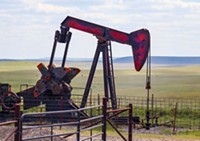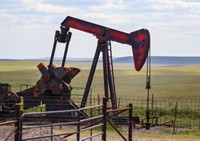Advertisement
Grab your lab coat. Let's get started
Welcome!
Welcome!
Create an account below to get 6 C&EN articles per month, receive newsletters and more - all free.
It seems this is your first time logging in online. Please enter the following information to continue.
As an ACS member you automatically get access to this site. All we need is few more details to create your reading experience.
Not you? Sign in with a different account.
Not you? Sign in with a different account.
ERROR 1
ERROR 1
ERROR 2
ERROR 2
ERROR 2
ERROR 2
ERROR 2
Password and Confirm password must match.
If you have an ACS member number, please enter it here so we can link this account to your membership. (optional)
ERROR 2
ACS values your privacy. By submitting your information, you are gaining access to C&EN and subscribing to our weekly newsletter. We use the information you provide to make your reading experience better, and we will never sell your data to third party members.
Environment
EPA watchdog declines to investigate chemistry professor
Inspector general turns down environmental groups’ request for a probe of methane emission study
by Jeff Johnson, special to C&EN
August 10, 2016

The Environmental Protection Agency’s inspector general won’t investigate allegations that a top EPA adviser knowingly used flawed data in an influential study of methane emissions from oil and natural gas production.
NC Warn, a North Carolina environmental group, and 130 other organizations claim that researcher David Allen used an inaccurate device to measure oil and gas field methane emissions in a study published in 2013 (Proc. Natl. Acad. Sci. USA 2013, DOI: 10.1073/pnas.1304880110). Allen is a University of Texas, Austin, chemical engineering professor and former head of EPA’s Science Advisory Board.
As a result of Allen’s study, the groups allege, U.S. oil and gas field emissions of methane, a potent greenhouse gas, were underestimated. The low and inaccurate emissions figures have influenced EPA’s development of regulations to control methane emissions from new and existing oil and gas facilities, they said in a petition filed in June with the agency’s inspector general.
The EPA Office of Inspector General gave C&EN no reasons for its decision not to investigate Allen. However, the office is still considering whether to launch an evaluation of the EPA program that used Allen’s data, a spokesperson says.
CORRECTION: On Sept. 7, 2016, this story was updated to correct David Allen’s position at the University of Texas, Austin.





Join the conversation
Contact the reporter
Submit a Letter to the Editor for publication
Engage with us on Twitter